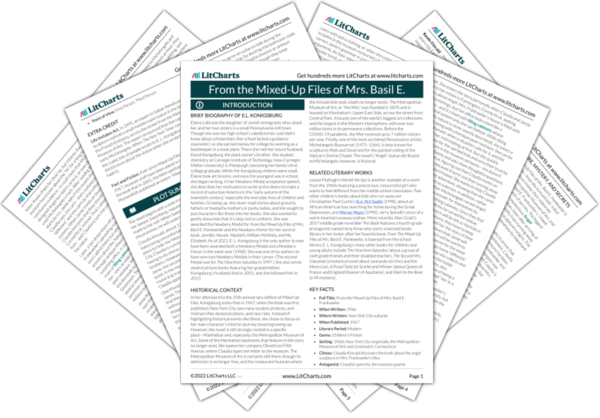Mrs. Frankweiler gets to the heart of Claudia’s feelings about Angel and running away in general. She pinpoints the fact that, regardless of what Claudia thought at first, Claudia wasn’t really interested in doing something outwardly daring. Rather, she wanted to change
inside—to grow up, in other words. The Angel secret has served that need. Mrs. Frankweiler collects secrets for a similar reason, it seems, so she understands how Claudia feels.
